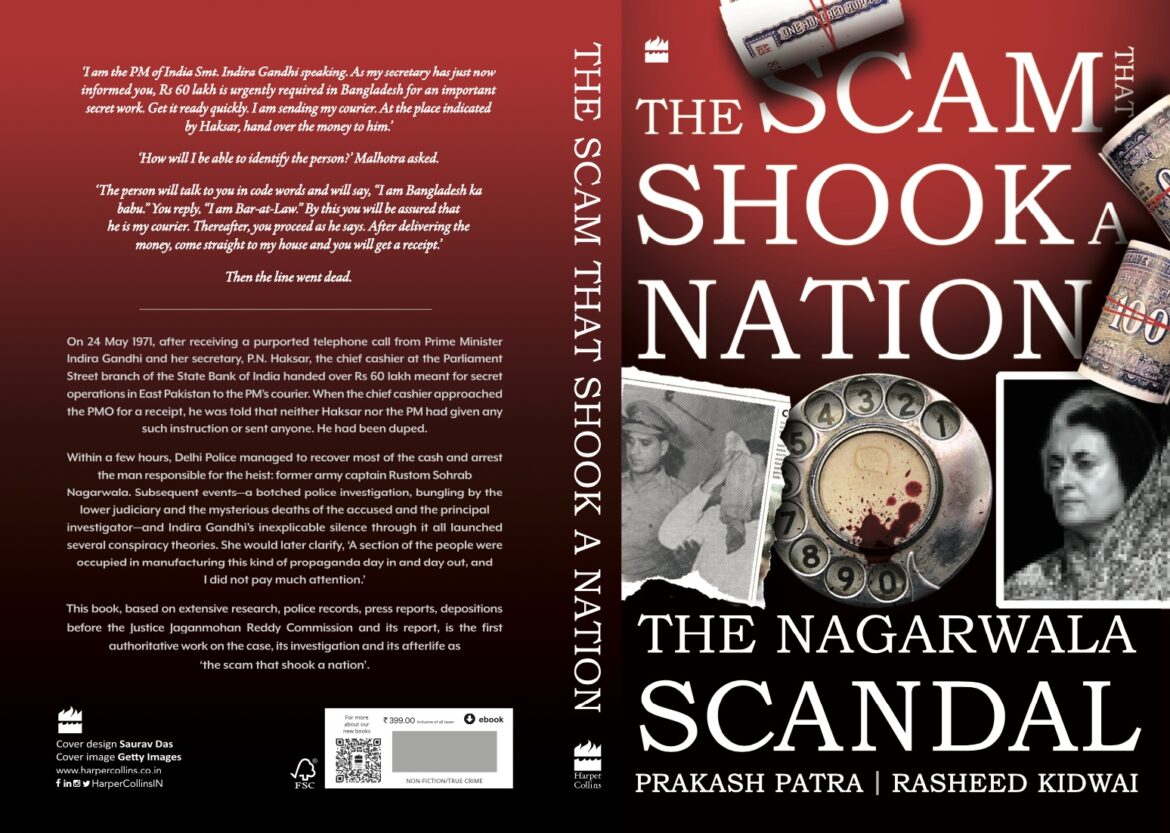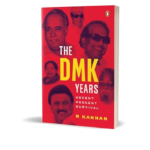“Daka pad gaya 60 lakh ka sarkari bank Parliament Street mein,” a caller spoke in a hushed voice to a crime reporter at The Statesman office in New Delhi. And thus unveils one of the most enigmatic episodes in India’s crime story “The Nagarwala Scandal.”
This was in May 1971 when Prime Minister Indira Gandhi was riding her massive popularity in the-then just concluded Lok Sabha elections, after decimating a combined opposition of Congress (O), Swatantra Party, Jan Sangh and PSP had formed government in Centre.
Prakash Patra and Rasheed Kidwai chronicled this heist crime for the readers in their book, “The Nagarwala Scandal.” During the early seventies, three crime stories aroused interest of readers across the nation; Nagarwala con job, a bank robbery case by a young Sunil Batra, and the supari killing of Dr. Vidya Jain by her husband.
The writer duo in their thoroughly researched piece have meticulously covered the through in-depth view of the FIR, case diary and judicial findings. The story involves a Parsi gentleman Rustom Sohrab Nagarwala who triggered the heist by impersonating PM Gandhi, and calling the cashier of Parliament Street branch, New Delhi to set aside Rs 60 lacs (Rs 170 crores in today’s value) for pick up for utilization towards the Bangladesh liberation war. Nagarwala not only collected the funds, but also attempted to evade the scene prior to his arrest at Palam airport.
The writers seem to have delved into many archival records, and the minutes of Reddy Commission hearings. The book moves like a detail Salim Javed screenplay, with accurate details of PMO gate numbers, names of security officers at PMO, old names of Delhi’s road like Kitchner Road (now Palam Rd).
Nagarwala’s arrest and subsequent recovery of the money led to massive conspiracy theories, everything from the personal involvement of PM Gandhi and her confidant PN Haksar, a CIA plot, cover-up by Sanjay Gandhi, and even Gandhi’s own Parsi connection with Nagarwala. It went so far as to result in the sitting PM, Morarji Desai needing to personally visit the commission office to give his testimony. Even opposition leaders, including LK Advani of Jan Sangh, imprisoned at Tihar jail sought Nagarwala to learn the inner details of the case.
The book not only presents and interesting narrative, no less than a crime thriller, but accurate documents the political developments and court saga, including the case lodged against the Gandhi govt with high profile lawyers like PN Lekhi representing Nagarwala. There is a very interesting anecdote of PM Gandhi’s back-channel exchange with RSS when she appointed MS Golwalkar, a member of the panel on the cow slaughter issue along with Shankaracharya of Puri, and Verghese Kurien of Amul.
As an aside, Rustom Nagarwala derived his Parsi surname from Ahmednagar (Nagar for short) a district HQ. in Maharashtra which had a small Parsi community once engaged in hatcheries, and the alcohol business. Parvez Damania, the owner of now defunct Damania Airways, belonged to the same Nagar.
The overall coherence of the book is ideal for those interested in India’s political history, legal and financial dynamics of a high-profile criminal case, which continues to be a topic of conversation decades later. This book will definitely have special appeal to historians, lawyers, political observers and crime reporters in the media.
Disclaimer: The opinions and views expressed in this article/column are those of the author(s) and do not necessarily reflect the views or positions of South Asian Herald, its editorial team, or its affiliates. South Asian Herald does not endorse any opinions or statements made within the content.






